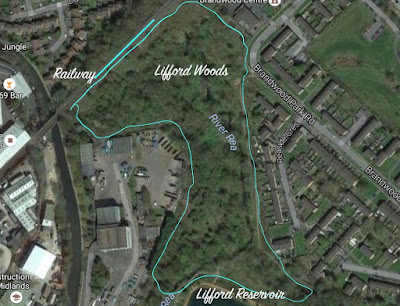A visiting student from Virginia asks -
Questions
Q1 What do you think are the biggest benefits of teaching and using traditional woodland management techniques in city parks?
A1. The essence of a Ranger’s role is to engage the community at large with the aim of encouraging more people to use parks and green spaces. Therefore a range of themes, topics and activities are employed to meet the broad interests and diverse nature of the public, involving people of all ages, abilities, ethnicities etc.
The ‘woodland’ theme seems to have universal appeal and is steeped in history, ecology, science, spirituality, mythology and culturally, much more.
So generally we can assume people want to learn something new, make something using natural resources and have an involvement in their local green space, so that a few basic skills, some knowledge and a morsel of understanding related to ecological principles allows people to feel good about themselves and enables them to share these good feelings, acquired skills and gained knowledge with family and friends.
Q2. Why do you think it is important to offer volunteer/educational events in city parks?
A2. Healthy outdoor activity is key to a balanced healthy life, especially in a modern city in which ‘green’ opportunities are few and the stresses many. So by providing outdoor activities in pleasant green space we provide an opportunity for people to escape the pressures of city living. Try Richard Louve, ‘Last Child in the Woods’ for a fully persuasive account of the consequences of inadequate exposure to nature and green space. Here he coins the term ‘nature deficit disorder’, awaiting those in later life who fail to satisfy their primeval needs early on.
Q3. What's been one of your most rewarding projects in Highbury Park (or another park if something stands out)?
A3. The concept of ‘Woodland Wednesdays’ was born out of the persistent demands from the Highbury Park Friends and other park users, who came with a series of never ending and insatiable enquiries, so that we were meeting weekly to discuss the latest ‘new track’ or unauthorised activity’ or bit of unexplained flattened vegetation. Relatively minor issues in themselves but the sum of which required attention - so began regular site meetings entitled the Highbury ‘Working Party’, and included the Friends, the Orchard (HOCCIC), bee keepers, allotment holders, passers by and anyone caring to join in.
I was determined to keep the themes and meetings positive, and rather than constant ‘fire fighting’ or fending off awkward questions with equally awkward and pathetic responses I decided to overwhelm the complaints and feelings of dissatisfaction with an overload of information and philosophy, that was the idea anyhow.
Woodland Wednesdays came as we were setting up ‘Active Parks’ sessions and rangers were encouraged to put a programme together. There was no way I was leading ‘zumba’ or ‘pilates’, which at first I thought was some type of Italian food, so we managed to successfully persuade the organisers that woodland management, themed walks and ‘Down To Earth’ activities for young children would fit the bill as far as public health and well being was concerned. This has been most satisfying but is now under threat from budget cuts - which leads nicely to the next question.
Q4. What do you think are the biggest challenges currently facing Birmingham's city parks?
A4. Surviving the budget cuts - check out this link -
Parks, along with all local authority services have received severe budget cuts for the past 8 or 9 years and there’s no let up this year, in fact the Parks Department is at a critical stage in its existence and by 2020 is likely to be unrecognisable from the department of 2010.



Comments
Post a Comment